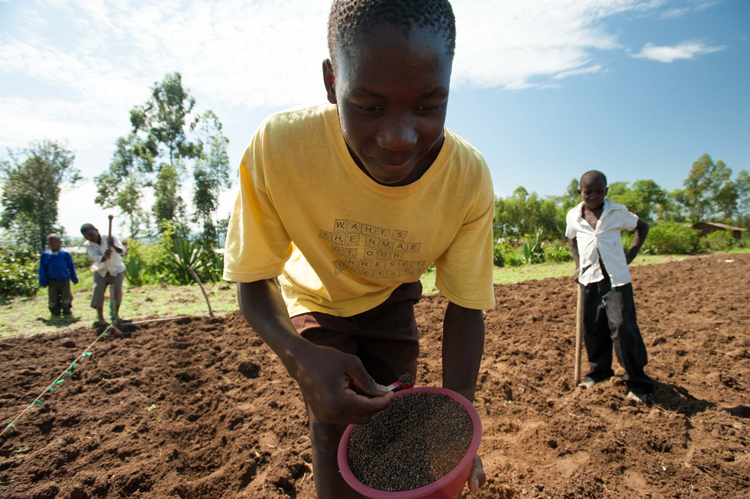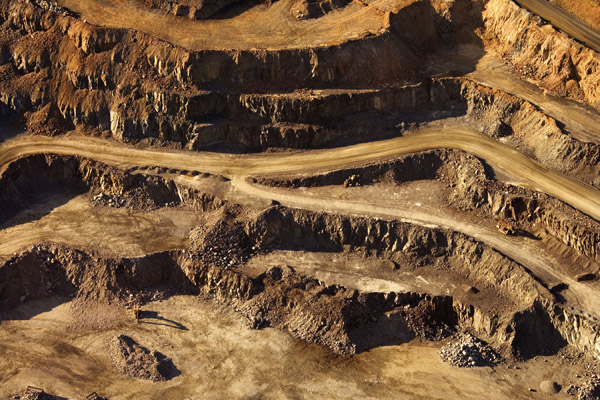Puneet Parikh (New Delhi, India)
While most investors put their money in the inflated stock market averages like the Dow Jones, perhaps far fewer of them are bullish on agriculture and invest in agriculture-related stocks. This is even though having exposure to the sector, along with other contrarian investments like precious metals and uranium, can help prospective investors partake in the explosive gains that occur when the market turns. Investors looking for startup opportunities in the agriculture sector should keep one continent in mind: Africa. Whilst Sub-Saharan Africa currently takes the top spots in terms of undernourishment, the majority of future population growth globally will not be happening in Asia as it has in the 20th century, but on the African continent. This presents a tremendous opportunity for investors to profit from companies that will provide inputs to fuel the agricultural boom in the 21st century.
The fundamentals for investing in agriculture are becoming more and more compelling as the days tick by. The world needs to double its food production over the next two decades to feed its fast-growing population, while nearly 33% of the world’s arable land has been lost to erosion or pollution in the last four decades. And it is here that the problem of food security emerges as a key element and factor in agricultural investing. For investors interested in making a profit – and a difference in the world – the relationship between food security and agricultural investing is worth answering. We can identify these main driving fundamentals underpinning food security: urbanization, growing population, climate change, emerging markets middle class, maximum fertilizer efficiency, growing pesticide/herbicide resistance, water scarcity.
When considering agricultural investing, it is here that ‘food security’ and ‘Africa’ come together. The UN Committee on World Food Security describes food security as “the condition in which all people, at all times, have physical, social and economic access to sufficient safe and nutritious food that meets their dietary needs and food preferences for an active and healthy life.” While some areas of the globe can be considered food secure, those conditions do not exist the world over – and it is especially in Africa where food security is high on the policy agenda of governmental authorities, business actors, NGOs, and scientists throughout the world. One key issue that these stakeholders focused on food security need to contend with is access to food. The World Food Programme claims that there is currently enough food in the world to keep every one of its inhabitants healthy and active, but the problem is access. Fixing access problems requires looking at infrastructure, trade and economic conditions, and many stakeholders seek to address those factors.
Another major constraint on African agriculture is the inability to secure financing to purchase fertilizer. By backing African fertilizer producers and participating in the financing of farms on the continent, prospective investors do not only help build a better future for Africa, but can also take part in the boom that will occur there, without purchasing land. The Gulf states, who have realized this potential, started investing heavily in African agriculture in 2008, as they have to import 80-90% of their food. As a consequence of this buying spree, the prices of agricultural land in Africa have skyrocketed over recent years, and thus leasing land will become more and more prevalent as the cries of nationalism turn the people against foreign ownership. Africa currently holds 60% of the world’s unused arable land, and with the steady growth of the wealth and the continent’s middle class, this land will be put into production with more of a focus on feeding the domestic market.
According to the World Bank’s estimates, Africa could more than triple its output if governments were to simplify foreign investment rules and radically re-consider their approach to regulation. Other opportunities that exist for entrepreneurs are inherent in the fact that the continent as a whole uses less than 2% of its renewable water resources and also that African farmers typically lose about 20% of their post-production crop due to poor storage conditions. Also investing in agricultural technology that allows for agricultural transformation through higher crops yields and more sustainable farming practices is needed if global food insecurity is to be adequately addressed in the 21st century. Of course, political and security risks, including political unrest or terrorist attacks, are a fact of life in Africa, so careful analysis must be conducted to determine if projects are viable.
Investment strategies for the agricultural sector also involve investing in natural resources like potash and phosphate, both of whom play an important role in enhancing food security as they provide the nutrients that are required to keep arable land fertile enough for crop cultivation and farming to take place. For investing in potash, it is especially important for investors to understand the different types of potash fertilizers, including muriate of potash and sulfate of potash. There are plenty of companies developing potash projects all around the world, many of which are listed on the TSX, TSXV and ASX. Like potash, phosphate is also a necessary fertilizer for certain soils and is important to ensuring the global population has access to sustainable food. However, unlike potash, which is found in many places globally, phosphate is more scarce. But since food security is a long-term and multi-sector challenge, investing in exploration and development companies is important as well.
Therefore, the case for investing in agriculture, and particularly in Africa, has never been stronger. Whilst the price of commodities may fall in the short term, the longer-term fundamentals dictate that prices must rise. If all these opportunities could be realized and inherent risks tackled, African agricultural sector is headed for the next big boom.




